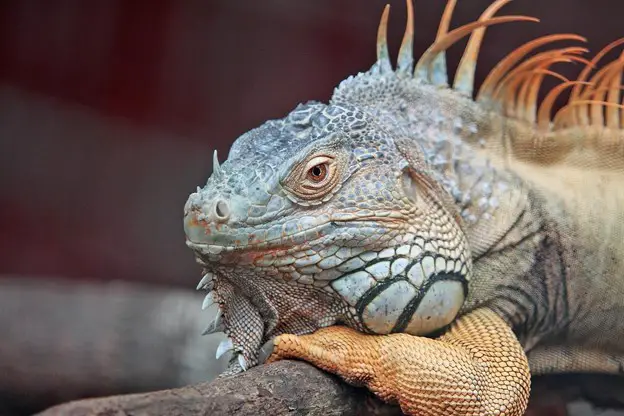Iguanas are wild animals that might be harmful as pets. They have tremendous protective abilities and will not hesitate to utilize them if they are genuinely threatened. To protect themselves, they may scratch, bite, and whip their tails, and they can also transmit salmonella to people and other pets.

Warning Signs You Should Consider If an Iguana Approaches You
According to Iguana Control, iguana bites and assaults are uncommon. Most species are not hostile towards people or other animals unless provoked or agitated. They also exhibit a variety of warning signals before biting, like fast head bobbing, protective tail whipping, or hissing.
As previously stated, iguanas are primarily herbivorous or omnivorous species that aren’t interested in huge prey. This implies they avoid interaction with people or other large creatures that may endanger them. On the other hand, wild male iguanas can be a little territorial during their mating season at the end of each summer.
You may easily avoid being bitten by an iguana by not approaching them (if they’re wild) or handling them with caution (if they’re captive or your pets).
Iguana Biting Power
The pain of an iguana bite should be considered when determining how hazardous they are. This lizard may cling to your hand, finger, or wrist and refuse to let go. If you fight and try to draw your hand back, you may injure yourself worse. Ripping may occur, and the wound may get significantly worse. Iguanas can bite down to the bone. If your iguana lets you go, it may bite you again right away. If you aren’t quick enough to move out of the path, iguanas will bite you again and again.
If your iguana has grabbed onto you, the first thing you should do is get them to let go of your hand without trying to pull them off of you. A rubbing alcohol-soaked towel waved in front of their face may cause them to loosen their grip. Ammonia may have the same effect. Keep these beverages on hand in the event of a bite.
Even if you’ve never been near enough to an iguana to see its teeth, iguanas do have them! In fact, they have a plethora of them. They are born with fully grown teeth ready to rip through thick plant growth! Alternatively, if they are one of the rarer omnivorous species, their teeth may rip insects and other animal things apart.
There are four equal quadrants inside an iguana’s mouth. Each quadrant has 20 to 30 teeth. Those teeth are continually growing, eroding, and being replaced by new ones. An iguana’s mouth has between 80 and 120 diamond-shaped teeth at any given moment! These teeth are tiny, transparent, and razor-sharp. They have a serrated edge, similar to the “teeth” of a steak knife.
Iguanas Can Cause Some Damage To People
Even while iguanas primarily utilize their teeth to rip at plants, they may cause substantial harm to unwary animals and people. However, it is not just their teeth that may be hazardous! Iguanas have extremely strong jaw bones and muscles that may clamp onto a predator animal (or your finger, for example) and create terrible wounds that often need stitches or, in rare circumstances, surgery.
In addition to their severe bite, Iguanas frequently carry and transmit salmonella germs. This makes them particularly hazardous if an iguana bite breaks the skin and draws blood. Iguanas, being pleurodonts, frequently shed their teeth when they bite. These small fangs have the potential to become entrenched in their bite wounds and induce bacterial infections.
